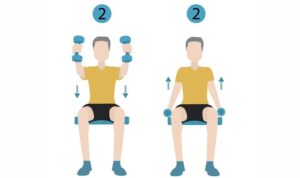Weight Loss Motivation takes center stage, inviting you into a world of fitness goals and self-improvement. Get ready to dive into the psychology behind staying motivated and achieving success in your weight loss journey.
Definition and Importance of Weight Loss Motivation

Weight loss motivation refers to the drive, determination, and desire to make healthy lifestyle changes in order to achieve weight loss goals. It is crucial for individuals embarking on a weight loss journey as it serves as the catalyst that propels them towards their desired outcomes.
Impact of Motivation on Weight Loss Journey
- Motivation helps individuals stay focused and committed to their weight loss goals, even when faced with challenges or setbacks.
- Having a strong sense of motivation can increase adherence to diet and exercise plans, leading to more sustainable weight loss results.
- Individuals who are motivated tend to have a more positive mindset and are better equipped to overcome obstacles that may arise during their weight loss journey.
Psychological Aspects of Motivation in Weight Loss
- Self-efficacy plays a crucial role in weight loss motivation, as individuals who believe in their ability to make positive changes are more likely to stay motivated and achieve their goals.
- Setting realistic and achievable goals can help boost motivation, as individuals are more likely to stay committed when they see progress towards their objectives.
- External factors, such as social support and encouragement from friends and family, can also influence an individual’s motivation to stick to their weight loss plan.
Types of Weight Loss Motivation

When it comes to weight loss, motivation plays a crucial role in determining success. There are two main types of motivation that can drive individuals towards their weight loss goals: intrinsic and extrinsic motivation.
Intrinsic Motivation
Intrinsic motivation refers to the internal drive and personal satisfaction that comes from achieving weight loss goals. This type of motivation is driven by factors such as a desire for improved health, increased energy levels, or a sense of accomplishment. Individuals who are intrinsically motivated to lose weight are more likely to stick to their diet and exercise routines long-term, as their motivation comes from within.
Comparing and Contrasting Intrinsic and Extrinsic Motivation, Weight Loss Motivation
In contrast, extrinsic motivation involves external factors such as rewards, praise, or social recognition. While extrinsic motivation can provide a temporary boost in motivation, it may not be as effective in the long run compared to intrinsic motivation. Those who rely solely on extrinsic motivation may struggle to maintain their weight loss efforts once the external rewards are no longer present.
Influence of Different Types of Motivation on Weight Loss Success
Examples of how different types of motivation can influence weight loss success include individuals who are intrinsically motivated being more likely to make sustainable lifestyle changes, while those who rely on extrinsic motivation may struggle to maintain their progress once the external rewards are removed. Ultimately, finding a balance between intrinsic and extrinsic motivation can help individuals achieve long-term success in their weight loss journey.
Strategies to Boost Weight Loss Motivation
To successfully navigate a weight loss journey, it is essential to stay motivated throughout the process. Here are some practical strategies to boost weight loss motivation:
Setting Achievable Goals
Setting realistic and achievable goals is crucial in maintaining motivation. By breaking down your weight loss journey into smaller milestones, you can track your progress and celebrate your achievements along the way. This helps to keep you focused and motivated to continue working towards your ultimate goal.
- Set specific and measurable goals, such as losing a certain number of pounds per week or fitting into a specific clothing size.
- Break down your long-term goal into smaller, manageable targets to prevent feeling overwhelmed.
- Regularly reassess and adjust your goals as needed to stay challenged and motivated.
Social Support
Having a strong support system can significantly enhance your weight loss motivation. Surrounding yourself with friends, family, or even online communities who encourage and motivate you can make a big difference in staying on track with your goals.
- Share your progress with supportive individuals who can cheer you on and provide accountability.
- Join a weight loss group or community to connect with like-minded individuals who understand the challenges you are facing.
- Participate in fitness classes or group workouts to stay motivated and engaged with others on a similar journey.
Overcoming Challenges in Weight Loss Motivation
Maintaining weight loss motivation can be challenging due to various obstacles that individuals may face along their journey. These obstacles can include plateaus, setbacks, lack of progress, and feelings of discouragement. It is crucial to address these challenges effectively to stay motivated and committed to achieving weight loss goals.
Identifying Common Obstacles
- Plateaus: When weight loss progress stalls, it can be demotivating and lead to frustration.
- Setbacks: Instances where individuals may regain weight or face obstacles that hinder their progress.
- Lack of Progress: Not seeing immediate results can be discouraging and may cause individuals to lose motivation.
- Feelings of Discouragement: Negative self-talk, comparison to others, and unrealistic expectations can impact motivation.
Strategies for Overcoming Challenges
- Set Realistic Goals: Break down long-term goals into smaller, achievable milestones to track progress effectively.
- Focus on Non-Scale Victories: Celebrate improvements in energy levels, strength, and overall well-being, not just numbers on the scale.
- Seek Support: Surround yourself with a supportive network of friends, family, or a professional to help you stay accountable and motivated.
- Practice Self-Compassion: Be kind to yourself during setbacks or plateaus, and remember that progress takes time and consistency.
Importance of Self-Compassion and Resilience
- Self-compassion allows individuals to forgive themselves for mistakes, learn from setbacks, and continue moving forward with motivation.
- Resilience helps individuals bounce back from challenges, setbacks, and plateaus, maintaining focus on long-term goals despite temporary obstacles.
